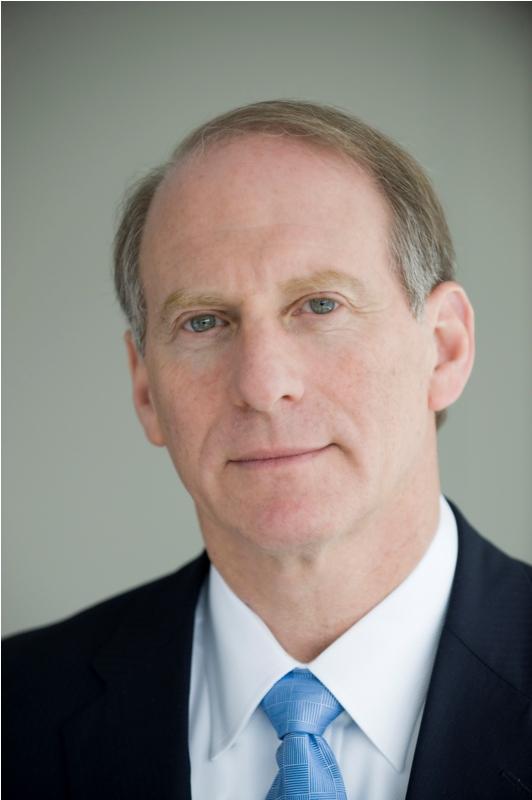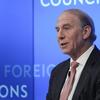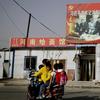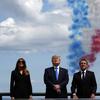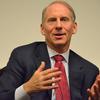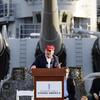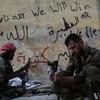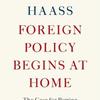Dr. Richard Haass is president of the Council on Foreign Relations, a position he has held since July 2003. The Council on Foreign Relations is an independent, nonpartisan membership organization, think tank, and publisher dedicated to being a resource for its members, government officials, business executives, journalists, educators and students, civic and religious leaders, and other interested citizens in order to help them better understand the world and the foreign policy choices facing the United States and other countries.
Dr. Haass is the author or editor of eleven books on American foreign policy, including War of Necessity, War of Choice: A Memoir of Two Iraq Wars (Simon and Schuster, May 2009). He is also the author of one book on management: The Bureaucratic Entrepreneur: How to Be Effective in Any Unruly Organization (Brookings, 1999).
From January 2001 to June 2003, Dr. Richard Haass was director of policy planning for the Department of State, where he was a principal adviser to Secretary of State Colin Powell. Confirmed by the U.S. Senate to hold the rank of ambassador, Dr. Haass also served as U.S. coordinator for policy toward the future of Afghanistan and U.S. envoy to the Northern Ireland peace process. For his efforts, he received the State Department’s Distinguished Honor Award.
Dr. Haass has extensive additional government experience. From 1989 to 1993, he was special assistant to President George H.W. Bush and senior director for Near East and South Asian affairs on the staff of the National Security Council. In 1991, Dr. Haass was awarded the Presidential Citizens Medal for his contributions to the development and articulation of U.S. policy during Operations Desert Shield and Desert Storm. Previously, he served in the Departments of State (1981-85) and Defense (1979-80) and was a legislative aide in the U.S. Senate.
Dr. Haass also was vice president and director of foreign policy studies at the Brookings Institution, the Sol M. Linowitz visiting professor of international studies at Hamilton College, a senior associate at the Carnegie Endowment for International Peace, a lecturer in public policy at Harvard University’s John F. Kennedy School of Government, and a research associate at the International Institute for Strategic Studies. A Rhodes scholar, Dr. Haass holds a BA from Oberlin College and Master and Doctor of Philosophy degrees from Oxford University. He has received honorary doctorates from Hamilton College, Franklin & Marshall College, Georgetown University, and Oberlin College.
Dr. Richard Haass was born in Brooklyn, New York, in 1951. He lives in New York City with his wife and two children.
Richard Haass appears in the following:
100 Years of 100 Things: America the Superpower
Thursday, November 14, 2024
The Threat From Within
Monday, July 17, 2023
Why Globalism Matters
Tuesday, May 12, 2020
D-Day Memories and What We Need to Learn From Them
Thursday, June 06, 2019
'The U.S. Hasn't Walked Off of The World Stage Completely'
Wednesday, February 28, 2018
World Order 2.0
Thursday, January 26, 2017
What's Next in Syria?
Friday, August 30, 2013
Richard Haass, president of the Council on Foreign Relations and author of Foreign Policy Begins at Home: The Case for Putting America's House in Order, talks about how the international community should respond to the ongoing crisis in Syria.
U.S. Foreign Policy: Lead By Example
Wednesday, May 29, 2013
Richard Haass president of the Council on Foreign Relations, former director of policy planning for the Department of State and author of Foreign Policy Begins at Home: The Case for Putting America's House in Order (Basic Books, 2013) says the U.S. needs to fix its problems at home to regain credibility abroad.
Richard Haass
Sunday, February 06, 2011
Richard Haass who serves as the President on the Council on Foreign Relations, America’s leading think tank on foreign policy, has had a distinguished career. Most recently he was the Director of Policy Planning for the State Department and earlier served as Special Assistant to the first President Bush.
Richard Haass on Transparent Diplomacy
Wednesday, December 01, 2010
The hundreds of thousands of secret memos released by WikiLeaks this week shine a bright light on a world used to being away from the public eye. Some argue secrecy in diplomacy is important.On Monday, Secretary of State Hilary Clinton responded to the release by saying that "it is imperative that we have candid reporting from those who are in the field, working with their counterparts, in order to inform our decision making back here in Washington." But what would it be like if the art of diplomacy was always this open?
Should the US Stay in Afghanistan?
Friday, August 13, 2010
This Sunday, General David Petraeus will go on a media offensive in which he is expected to make the case for why we should not rush the withdrawal from Afghanistan.
However, this comes at a time when public support for the war is rapidly dwindling. Many Americans have fixed their expectations on what the president pledged in December 2009 when he ordered more troops to Afghanistan: “These additional American and international troops will allow us to accelerate handing over responsibility to Afghan forces and allow us to begin the transfer of our forces out of Afghanistan in July of 2011.”
Reacting to President's Nobel Prize Acceptance Speech
Thursday, December 10, 2009
Anticipating President's Nobel Prize Acceptance Speech
Thursday, December 10, 2009
Afghanistan 8 Years Later: Still a War of Necessity?
Wednesday, October 07, 2009
Wars of Choice and Necessity
Wednesday, May 27, 2009
Event: Richard Haass will be in conversation with Katie Couric
Wednesday, May 27th, at 8:00 ...
